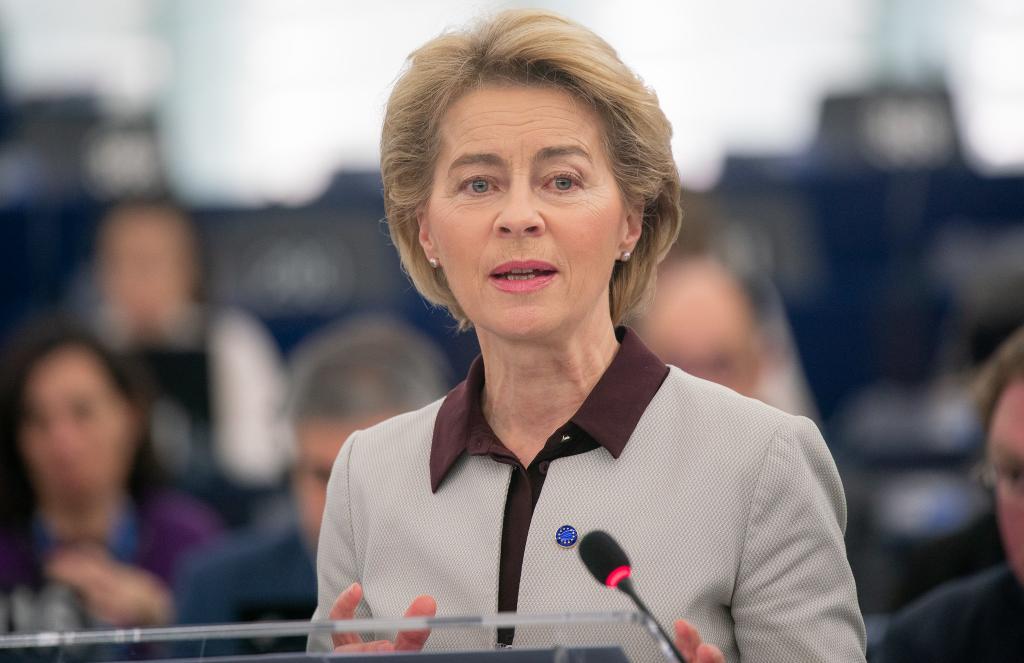Thessaloniki gets ready for its metro launch in November
The underground rapid transit lines have been under construction for almost two decades due to various project delays
 TheMayor.EU logo
TheMayor.EU logo 
Ursula von der Leyen, Source: EU budget debate ahead of crucial summit - with Ursula von der Leyen by European Parliament on Flickr (CC BY 2.0)
Fake news about the spread, treatment and effects of COVID-19 have become an everyday occurrence an the EC wants to put an end to it
Over the past few years European citizens have been constantly bombarded by disinformation and fake news on a wide range of topics – be they migrants, the situation in the Middle East or elections. None of them, however, have been as dangerous as the falsities related to COVID-19.
Foreign states, misinformed citizens and malicious actors have been engaging in a battle for control over the narrative about the coronavirus – a battle that is dangerous for the health of every single person in the European Union.
That is why the European Commission is working alongside media platforms and organisations in order to suppress lies and disinformation and promote authoritative sources that have been verified and do not seek to drive a political agenda and play with the lives and health of European citizens.
Furthermore, the responsible commissioners, including Mariya Gabriel, have vowed to keep an eye on social media platforms and their adherence anti-fake news guidelines to which they have signed up and have endorsed.
But institutions can not do it alone. Every citizen must aid the European Commission on its quest for a safer and more reliable media environment.
On an individual level, you can do much in order to stop the spread of fake news. First, you should double and triple-check everything you read before sharing – and you should do so by relying on some of the official and recognized sources - like state actors and international organisations – like the European Centre for Disease Control (ECDC) and the World Health Organisation (WHO).
Furthermore, you can also report content that is false and makes fake claims to social media platforms, who are also working alongside the European Commission, thus helping them find and detect those who seek to spread lies and panic.
If you’re interested in learning more about the coronavirus, you should also do so by checking out reputable sources, rather than makeshift explanations. You can find plenty of interesting and informative materials on the European Commission’s dedicated webpage.

The underground rapid transit lines have been under construction for almost two decades due to various project delays

Now you can get your wine in Talence by paying directly in Bitcoin

That’s because the state has to spend money on updating the railway infrastructure rather than subsidizing the cost of the popular pass

Rethinking renewable energy sources for the urban landscape

The examples, compiled by Beyond Fossil Fuels, can inform and inspire communities and entrepreneurs that still feel trepidation at the prospect of energy transition

Now you can get your wine in Talence by paying directly in Bitcoin

The 10th European Conference on Sustainable Cities and Towns (ESCT) sets the stage for stronger cooperation between the EU, national and local level to fast track Europe's transition to climate neutrality.

At least, that’s the promise made by the mayor of Paris, Anne Hidalgo

The underground rapid transit lines have been under construction for almost two decades due to various project delays

At least, that’s the promise made by the mayor of Paris, Anne Hidalgo

Hostal de Pinós is located in the geographical centre of the autonomous region

Despite its church-y name, the district has long been known as the hangout spot for the artsy crowds

Urban dwellers across the EU are having a say in making their surroundings friendlier to people and the environment.

Forests in the EU can help green the European construction industry and bolster a continent-wide push for architectural improvements.

Apply by 10 November and do your part for the transformation of European public spaces

An interview with the Mayor of a Polish city that seeks to reinvent itself

An interview with the newly elected ICLEI President and Mayor of Malmö

A conversation with the Mayor of Lisbon about the spirit and dimensions of innovation present in the Portuguese capital














